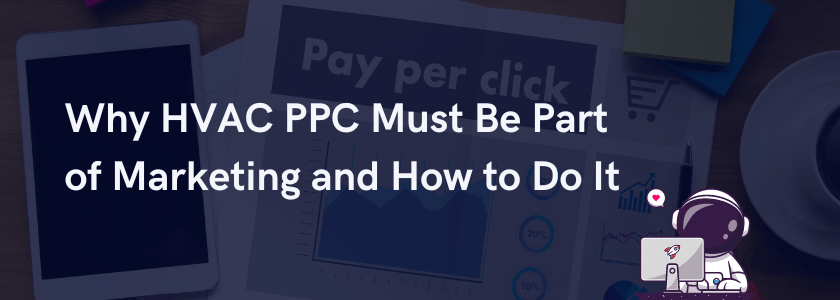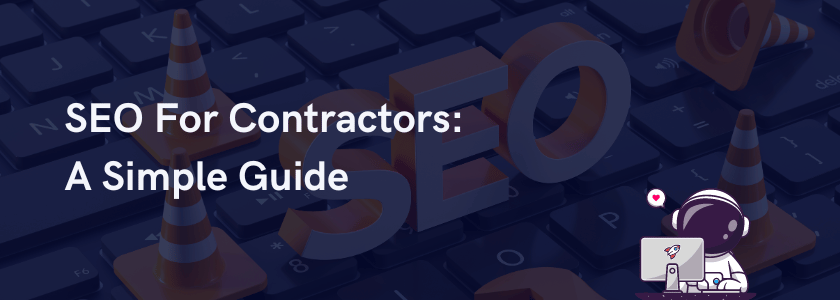Growing a business in today’s competitive market often comes down to choosing the right marketing strategies.
Two popular options are content marketing and email marketing. Both have unique strengths and serve specific purposes, but how do you decide which is better for your business growth?
This article breaks down the differences, benefits, and how to effectively use each approach, helping you make an informed choice between content marketing vs email marketing.
What is Content Marketing?
Content marketing focuses on creating and distributing valuable, relevant, and consistent content to attract and engage a clearly defined audience. The goal is to drive profitable customer actions without being overly promotional. Types of content often include blog posts, infographics, videos, eBooks, and social media posts.
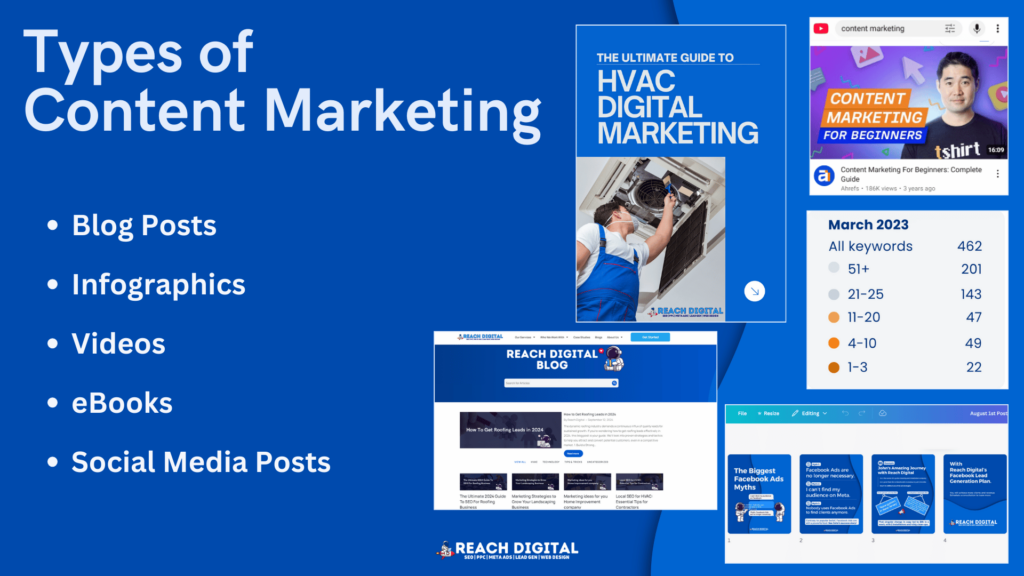
Benefits of Content Marketing
Whether through blogs, videos, social media posts, or white papers, content marketing builds relationships, fosters trust, and drives action.
Let’s explore the key benefits that make content marketing a vital strategy for businesses aiming for sustained growth.
- Builds Brand Authority: Establish your business as an industry leader by providing valuable, educational content that earns your audience’s trust.
- Increases Organic Traffic: SEO-optimized content improves your search engine rankings, driving consistent, cost-effective website traffic.
- Engages Audiences Across Platforms: Create content that resonates on blogs, social media, and video platforms, ensuring you reach your audience wherever they are.
- Drives Lead Generation and Conversions: Use educational resources like guides and eBooks to attract prospects and guide them through your sales funnel.
- Long-Term ROI: Evergreen content delivers consistent traffic and leads, providing value long after its initial creation.
- Supports Other Marketing Efforts: Repurpose blogs or videos for email campaigns, social media, or paid ads, creating a cohesive and versatile strategy.
- Fosters Customer Trust and Relationships: Consistently offering helpful content shows your audience you care, building stronger connections over time.
- Establishes Thought Leadership: Share unique insights and expertise to position your business as a trusted voice in your industry.
When is Content Marketing Effective?
Content marketing shines when your target audience actively seeks information online to make informed decisions about products or services.
In industries where customers rely on research—such as home improvement, technology, or healthcare—content marketing provides an opportunity to meet their needs by delivering educational, engaging, and relevant materials.
This strategy is particularly effective for businesses with longer sales cycles, where nurturing leads over time is essential. For instance, a customer considering a major investment like an HVAC system or a home renovation will likely spend weeks or months researching options.
Businesses can use content marketing to guide this journey by offering valuable resources, such as how-to guides, comparison charts, or in-depth blogs that address common concerns.
What is Email Marketing?
Email marketing involves sending targeted emails to a group of potential or existing customers. This strategy aims to build relationships, promote products or services, and keep your brand top of mind. Effective email marketing relies on personalized and engaging email marketing content.
- Direct Communication: Deliver messages straight to your audience’s inbox, offering a personal and immediate way to connect compared to content marketing vs email marketing strategies.
- High ROI: Email campaigns generate significant returns for minimal costs, making it a top choice when evaluating content vs email marketing options.
- Customizable and Measurable: Segment audiences, personalize messages, and track key metrics like open and click-through rates, giving you actionable insights for improving your email marketing content.
- Fosters Customer Loyalty: Stay connected with newsletters and exclusive offers, building long-term relationships and encouraging repeat business.
- Efficient Lead Nurturing: Use email to guide prospects through the sales funnel with targeted, informative email marketing content, strengthening engagement and conversions.
- Supports Other Strategies: Combine email with content marketing vs email marketing efforts by sharing blog posts, videos, or promotions directly with your audience.
- Timely Engagement: Send time-sensitive updates, such as event reminders or seasonal offers, ensuring your audience stays informed and takes action.
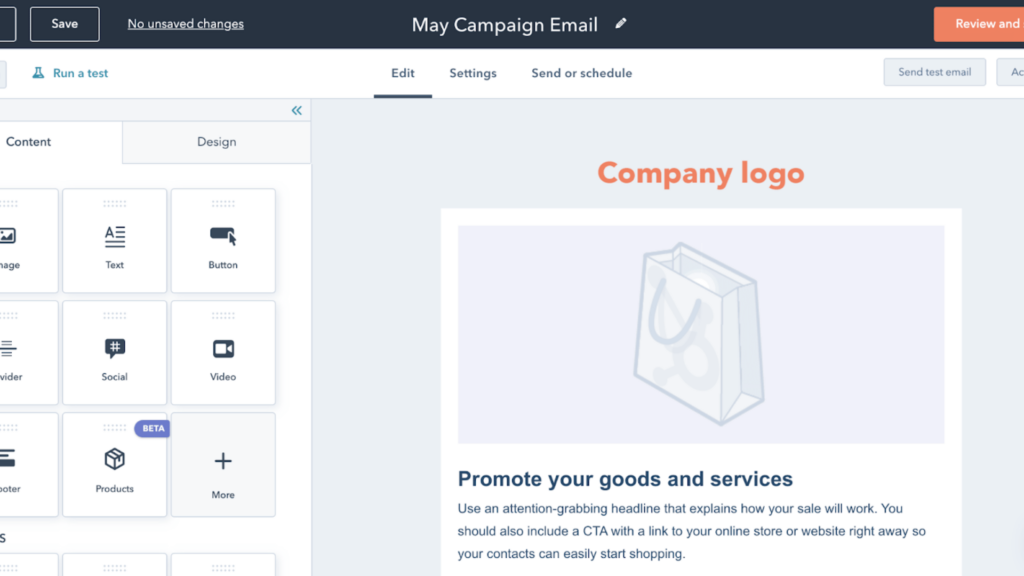
When is Email Marketing Effective?
Email marketing excels when your business has an established customer base or a well-maintained email list. It works particularly well for businesses that rely on frequent promotions, product updates, or reminders to stay connected with their audience.
For example, an e-commerce store can use email marketing to notify customers about upcoming sales, abandoned cart items, or loyalty rewards.
In addition, email marketing is highly effective for nurturing relationships with leads over time. Sending a series of educational emails—such as an HVAC company providing seasonal maintenance tips—builds trust and keeps your brand top-of-mind when the customer is ready to purchase.
While comparing content marketing vs email marketing, it’s clear that email marketing offers a more direct, personalized approach, making it ideal for businesses that prioritize customer retention and ongoing communication.
Combining Content and Email Marketing for Maximum Growth
Choosing between content marketing vs email marketing doesn’t have to be an either-or decision. Instead, integrating both strategies can significantly amplify your marketing efforts, leveraging the strengths of each approach to drive better results. Here’s how these two strategies complement and enhance each other:
Content as Lead Magnets
Content marketing provides valuable resources that can be used as lead magnets to grow your email list. Blog posts, videos, or downloadable eBooks offer insights or solutions that encourage potential customers to share their email addresses.
For instance, a free eBook titled “10 HVAC Maintenance Tips for Summer” can attract prospects researching HVAC solutions. This combination of content vs email marketing ensures you capture leads while delivering value. Once subscribed, these leads can be nurtured through strategic email campaigns.
Email to Distribute Content
Email marketing serves as a powerful distribution channel for your content. Sharing blog updates, video links, or case studies through email newsletters keeps your audience engaged and encourages them to revisit your website.
For example, a newsletter featuring a new blog post about “Top Energy-Saving HVAC Systems” can drive traffic to your site while positioning your business as an industry expert. When comparing content marketing vs email marketing, this synergy highlights how email amplifies the reach of your content.
Nurture Leads Through Automation
Combining educational content with automated email sequences allows you to guide prospects through the sales funnel effectively.
For instance, an email series could introduce subscribers to your brand, share blog posts relevant to their interests, and provide case studies that demonstrate your expertise.
An example of an HVAC e-mail marketing and content marketing strategy is when you send a sequence featuring tips for system maintenance, links to blog posts, and a case study about energy savings for homeowners. This blend of content vs email marketing ensures a personalized experience that builds trust and encourages conversions.
Enhanced Customer Insights
Analytics from both content and email campaigns provide valuable insights into customer behavior, preferences, and pain points.
Tracking which blog posts are most read or which emails receive the highest engagement helps refine your strategy.
For example, if a blog post on “Choosing the Best HVAC Filters” garners significant traffic and email clicks, you know this topic resonates with your audience. These combined insights from content marketing vs email marketing allow you to create more targeted and effective campaigns, improving overall performance.
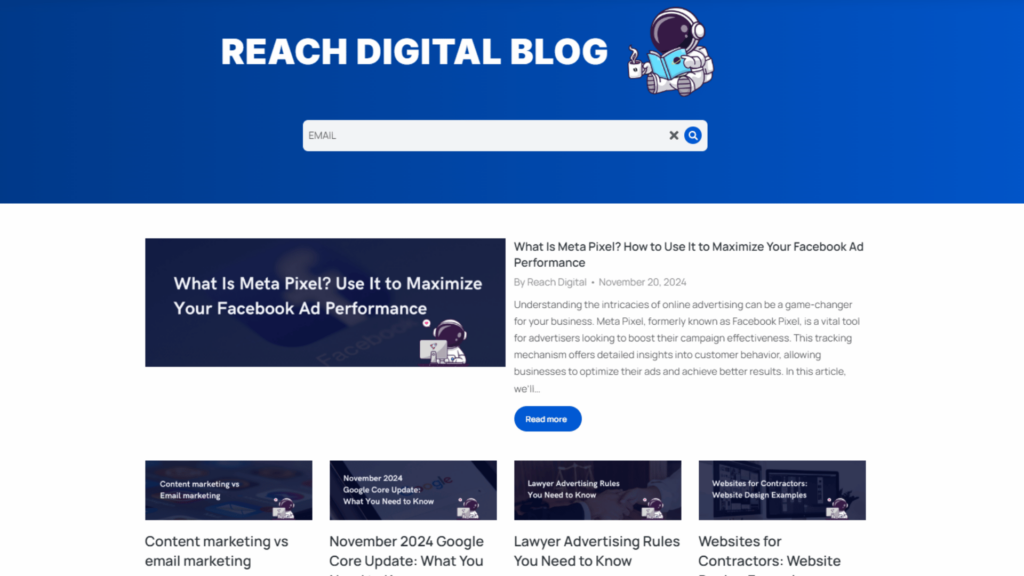
Factors to Consider When Choosing Between Content and Email Marketing
Deciding between content marketing vs email marketing requires a careful evaluation of your business’s unique needs and objectives. Both strategies offer distinct advantages, but their effectiveness depends on factors like your audience, goals, resources, and industry.
Below are key considerations to help you make the right choice.
- Your Audience’s Preferences: Determine if your audience prefers consuming blogs, videos, or white papers (content marketing) or direct inbox communication (email marketing).
- Your Business Goals: Use content marketing to increase brand visibility or email marketing to engage and convert existing leads.
- Available Resources: Content marketing demands more time, creativity, and expertise, while email marketing is quicker to launch and requires fewer resources.
- Industry-Specific Needs: Retail and hospitality thrive with promotional emails, while education-heavy industries often benefit more from content marketing.
- Engagement Longevity: Content marketing offers long-term benefits through evergreen materials, while email marketing drives immediate, time-sensitive action.
- Integration with Other Strategies: Both can complement each other by using content to attract leads and email campaigns to nurture and convert them.
- Analytics and Insights: Email provides clear metrics (open and click-through rates), while content marketing insights come from traffic, engagement, and SEO performance.
- Budget: Email marketing is budget-friendly, whereas content marketing may require a larger upfront investment in creation and distribution.
What’s Best for Your Business?
The choice between content vs email marketing depends on your business goals, audience, and available resources. For most businesses, a hybrid approach combining both strategies will deliver the best results. Content marketing builds awareness and credibility, while email marketing drives conversions and strengthens customer relationships.
Need help executing your digital marketing strategy? Reach Digital specializes in content marketing and e-marketing strategy to help you with your goals. Contact us today to take your business growth to the next level.




